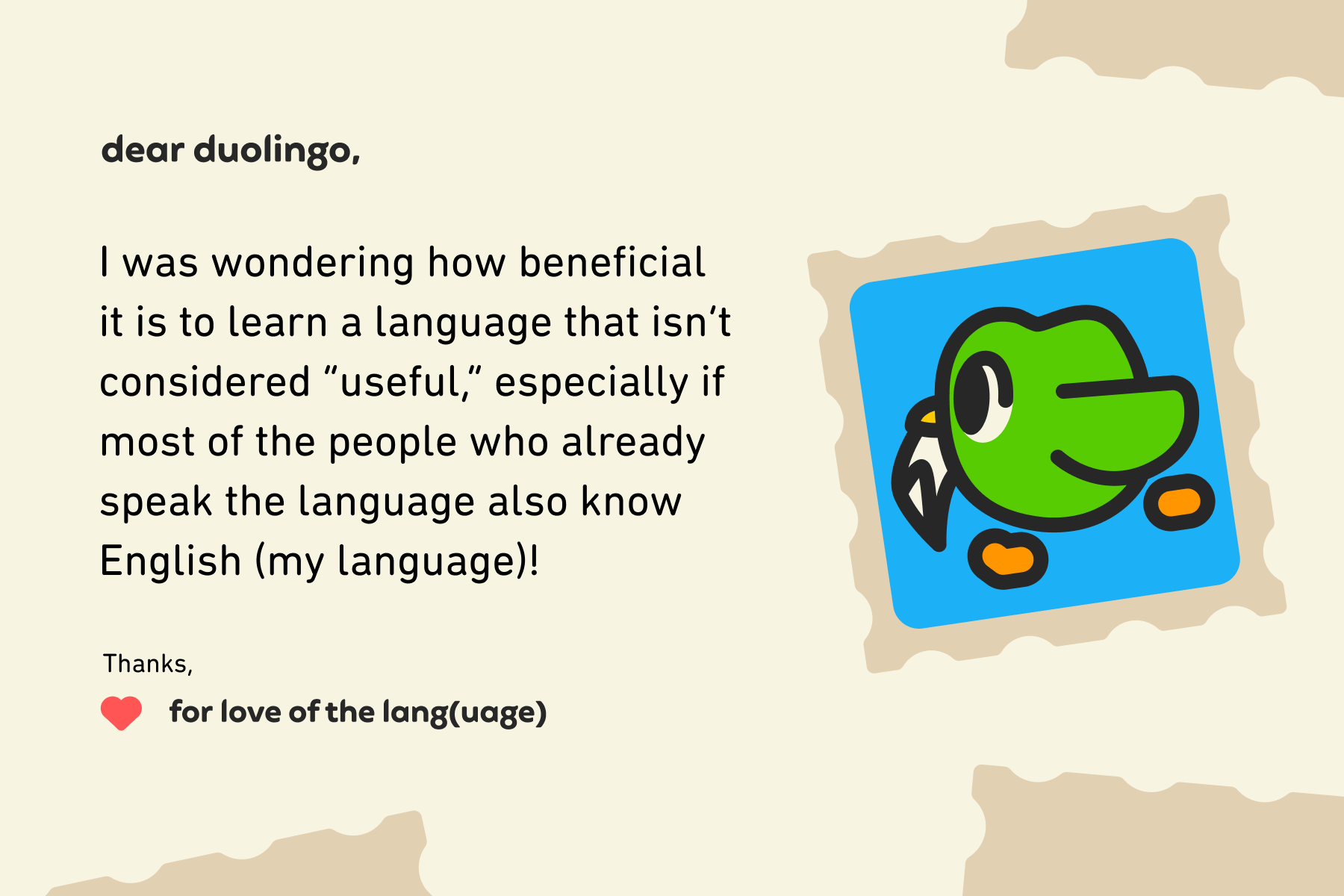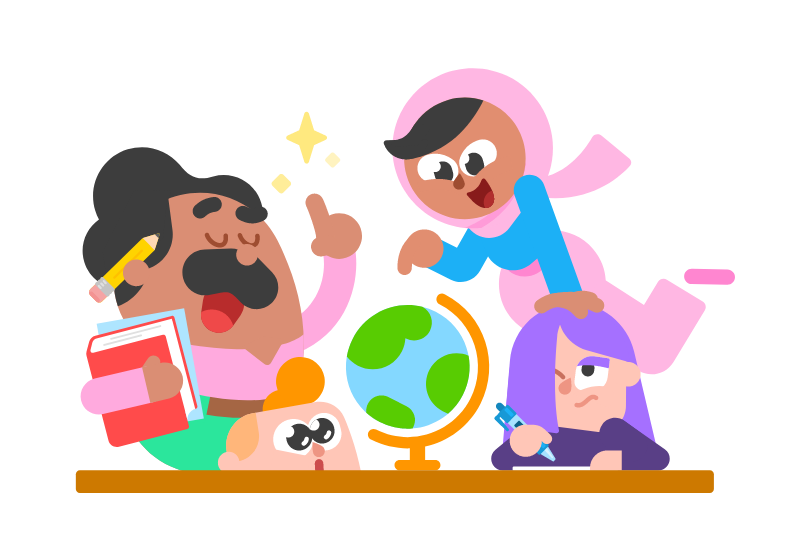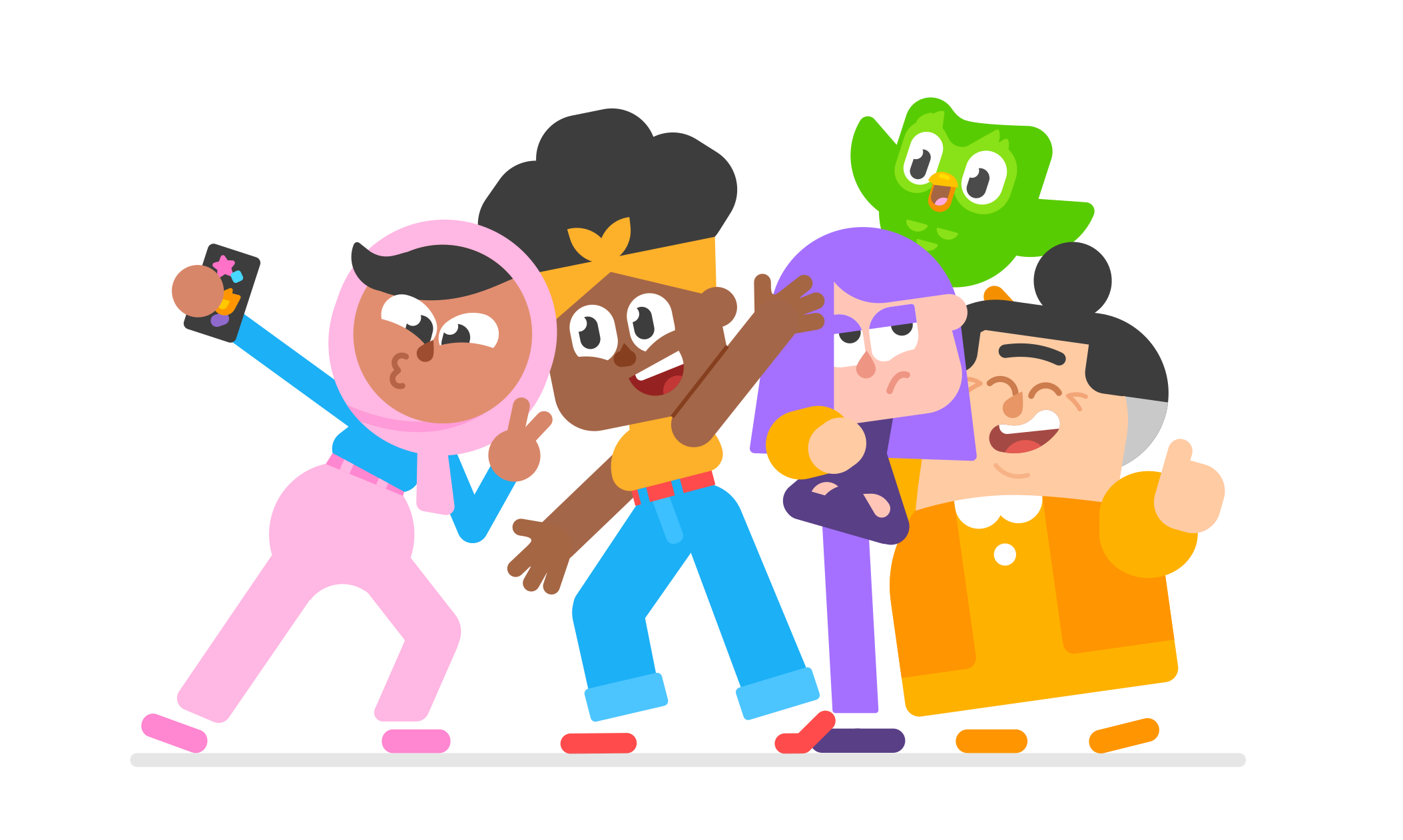Welcome to another week of Dear Duolingo, an advice column just for language learners. Catch up on past installments here.
Hi learners! This is a very special week for Duolingo: It's our 10th birthday!! So this week on Dear Duolingo, we're using this opportunity to celebrate the language learning that y'all have been doing with us for a decade – and in doing so will answer a question we hear from people studying a lot of different languages.
Everyone here loves studying languages, but even so, it's common to wonder what you can really get out of the experience.
Our question for the week:

We talk a lot about ways to support your learning and how language learning happens, but today is our chance to talk about why: What are the benefits to learning a new language? This week we're sharing 10 of those benefits, one for each year we've been making learning free, fun, and effective for people around the world. There are dozens of reasons why people decide to study a new language, and no matter which language you choose, there are lots of benefits!

- Connect with the people and cultures you care about. In 2021, family and heritage was the number one reason people in the U.S. started studying with Duolingo. Learning your family's language can help you communicate and connect with older relatives and those who still speak the language, and it can help you learn more about the places your family came from.

-
Learn about new cultures and perspectives. Languages are as diverse as cultures, and learning a new language can introduce you to new ways of imagining the world. You might learn about different kinds of formality and respect in Korean, new distinctions between colors in Russian and Turkish, and even new ways of expressing love and liking!
-
Get the whole story, beyond the subtitles. Whether it's translating French for Emily in Emily in Paris (she could use the help) or filling in the gaps when subtitles leave out important context, learning a language can help you enjoy more of the media you're already watching. (Not to mention you can blame (re)watching so much TV on your dedication to language learning – even the experts approve!)
-
Help your brain stay sharp and engaged. Learning a language forces your brain to be engaged, look for patterns, and problem-solve, and older adults who studied a new language consistently saw improved cognitive function!

-
Enjoy exclusive access to culture and current events. Knowing another language gives you direct access to books, music, social media, and podcasts in the language, without having to wait for translated versions to come out. Not to mention there is so much about pop culture, current events, and informal language to be learned through music and Twitter especially!
-
Think outside the box. Studying another language pushes you to express familiar ideas in totally different ways, through new words and grammar, and it can help knock you out of your thinking and writing ruts! Using a new language can help spark creativity, and writers like Nabokov used multiple languages to tap into different memories and perspectives.
-
Make the most of traveling. Building up some basic conversation skills in the language of your destination can help you connect with people through authentic exchanges. It also shows your interest in getting to know and understand the culture! Plus, knowing some of the language can help you feel more comfortable getting around in a new place.

-
Support your community. Other languages aren't used only in faraway lands – they're likely in your very own community, too! Learning the language of recent arrivals can help you build community and volunteer, support new refugees and immigrants, and make friends across cultures.
-
Grow your knowledge about your own language. Studying a new language can get you thinking in new ways about your own language! We learn our first language without thinking consciously about it (that's why we're so good at it!), so learning a second language gets you analyzing words and grammar in your own language in new ways. You might even find surprising connections between your languages, like borrowed words or similar grammar rules!
-
Make friends around the world. It's no surprise that learning a new language helps you connect with the people who actually use the language, but it also introduces you to global communities of learners! Whether it's on social media or in virtual language exchanges (like Duolingo Events), the act of practicing a language gets you interacting with people with similar linguistic interests and from different places and cultures.

There's no end to how your new language will change you and the ways you engage with the world! At Duolingo we're proud to make language learning more accessible for everyone, so we can bring each other a little closer together.
Get your learning and language questions answered by writing to us at dearduolingo@duolingo.com!
And happy birthday, Duo! 🥳



